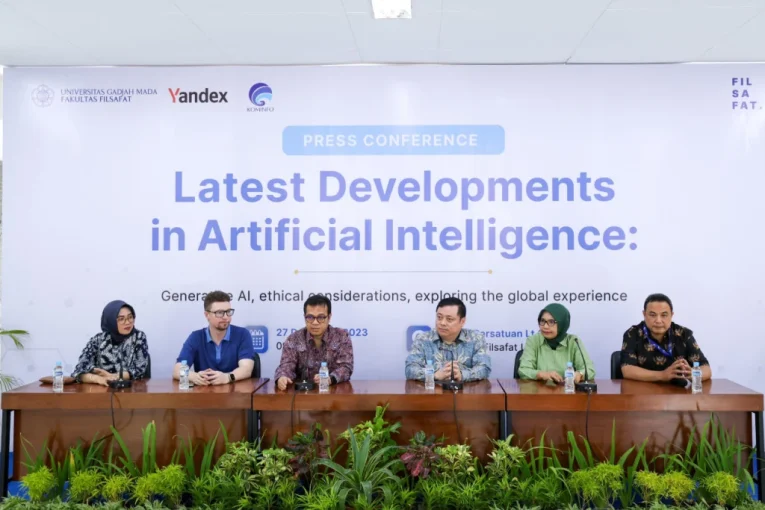
Nezar Patria, the Deputy Minister of Communication and Information Technology, enthusiastically endorses research and studies probing the ethical dimensions of deploying artificial intelligence (AI) in industrial and educational domains.
This resonates with the minister’s recently introduced policy, unveiling ethical guidelines for AI application in the public sector, a strategic move to ensure AI’s secure and productive use.
Speaking during the seminar titled “Recent Developments in Artificial Intelligence: Ethical Considerations and Global Experience Exploration,” held at the Notonagoro Room, UGM Faculty of Philosophy, on Wednesday (Dec. 27), Patria expressed strong support for university-led activities delving into the latest advancements in AI.
This gesture of support from the deputy ministry towards the initiative undertaken by the UGM Faculty of Philosophy signifies a commendable effort to encourage formulating ethical guidelines for AI application—an area increasingly gaining traction among the global youth.
In his remarks, Deputy Minister Patria acknowledged the daily evolution of AI, emphasizing the imperative of considering the ethical perspective on how these machines think and progress.
“For the Faculty of Philosophy, engaging in discussions about technological advancements with a human-centric focus is highly relevant,” he stated.
While underscoring the significance of AI ethics, Patria clarified that the guidelines crafted by the Faculty of Philosophy, in collaboration with UNESCO, do not impose legal consequences for non-compliance.
However, he emphasized their value as an initial reference point for future regulations, fostering heightened business awareness.
Dr. Siti Murtiningsih, the Dean of the UGM Faculty of Philosophy, underscored the faculty’s deep-seated concern for the unpredictable trajectory of AI development.
She iterated that the faculty is actively involved in ensuring that AI’s integration aligns with human activities, functioning as an extension to assist, rather than replace, human roles.
The seminar, a collaborative effort between the Faculty of Philosophy, Ministry of Communication and Information Technology, and Tandex International, featured esteemed speakers such as Alexander Popovsky, Vice President of Strategy at Yandex, and Dr. Lukas, the Chair of the Indonesian AI Society.
Alexander Popovskiy conveyed Yandex’s commitment to collaborating with the Indonesian government, industry stakeholders, and universities, sharing knowledge and experiences in the application of AI technology.
“We believe Yandex will contribute to the digital and technology community in Indonesia and overall development,” he affirmed.
Dr. Lukas emphasized that AI technology transcends consumerism within their community, aiming to instill mastery of AI skills.
“Our community is building a spirit to master AI technology in collaboration with the government and business circles. We want to guide Indonesia in 2045 to become an advanced country, adept at using technology and proficient in mastering and utilizing it effectively,” he concluded.
Author: Gusti Grehenson
Photographer: Donnie
